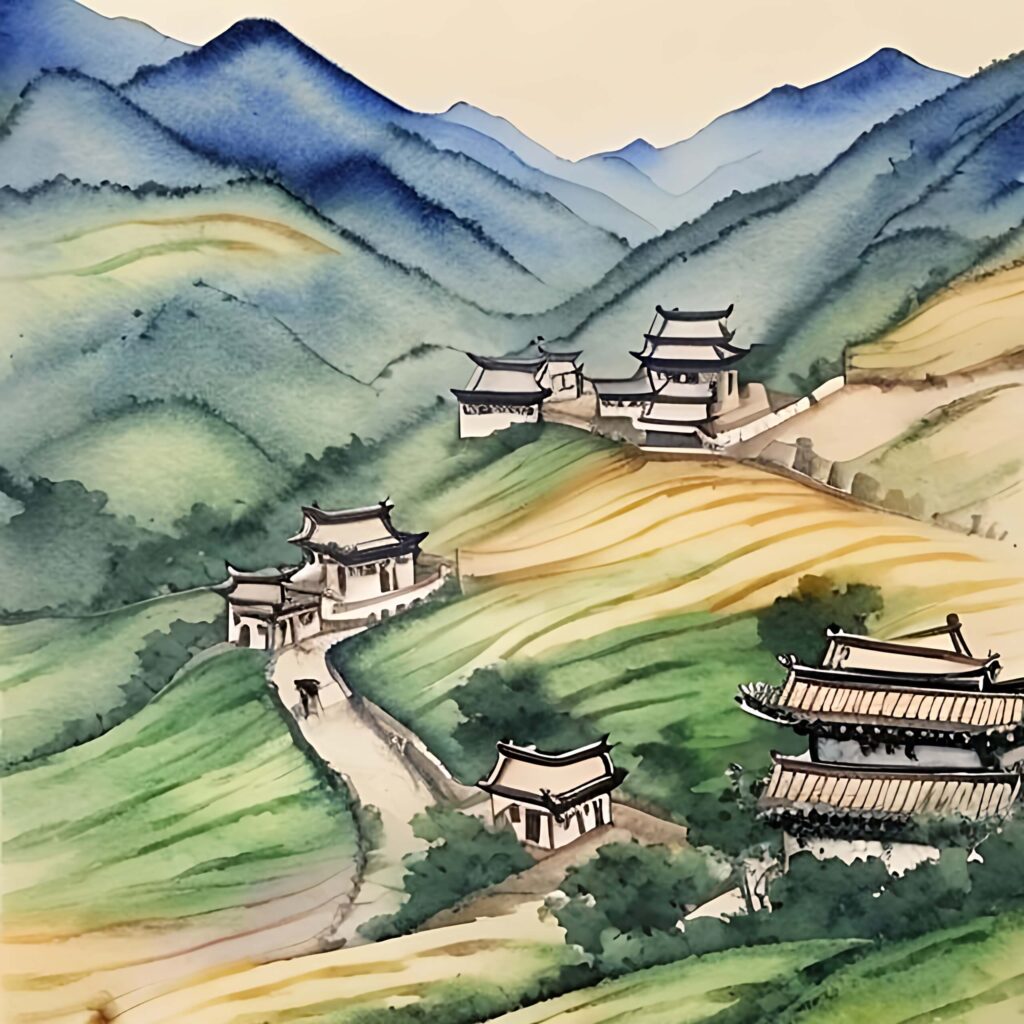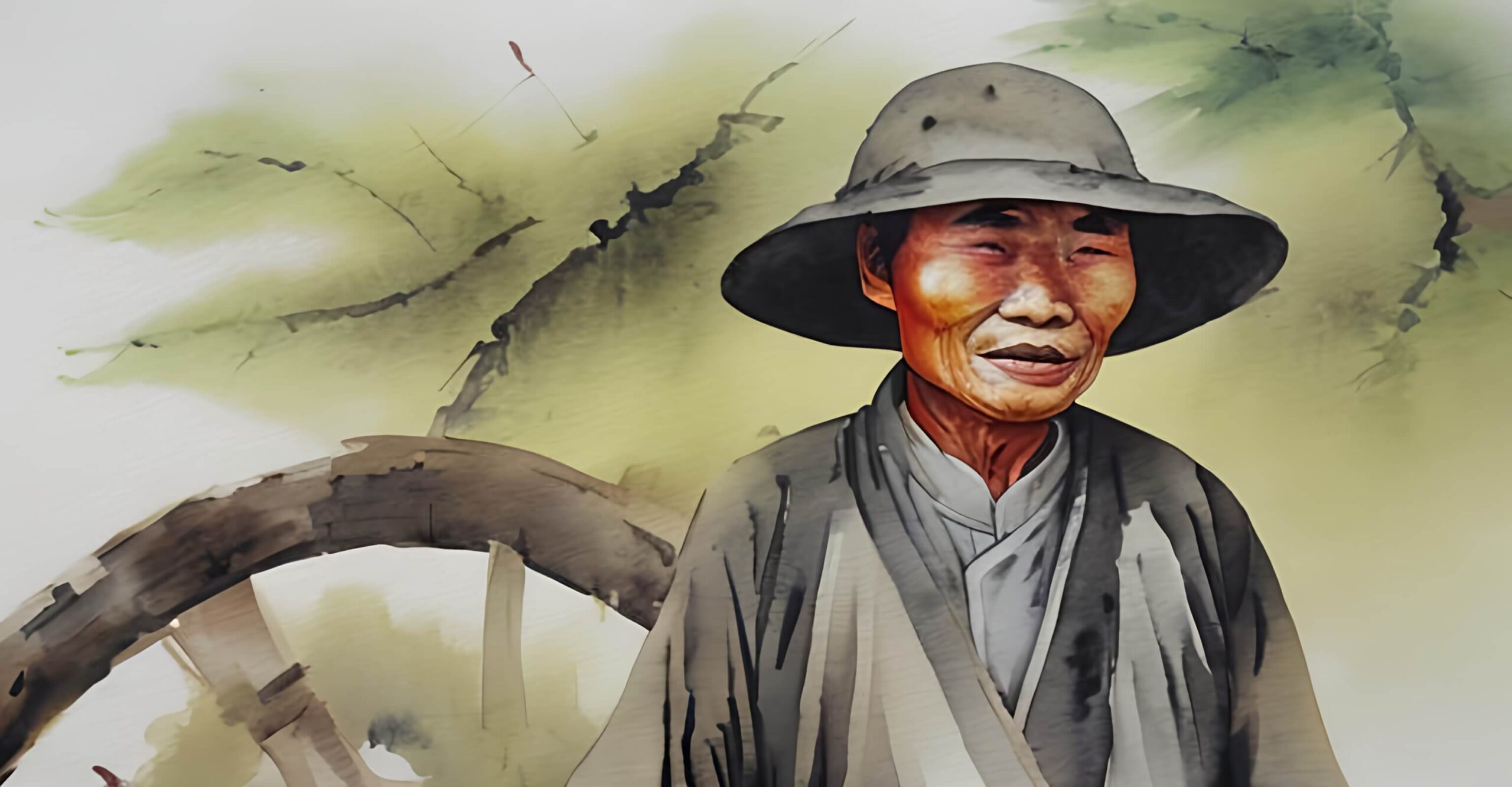Have you ever questioned the nature of good and bad, pondered the dance of fate, or found yourself lost in the labyrinth of life’s uncertainties? Then journey with me to the heart of ancient China, where a simple farmer unlocks a profound truth that echoes across time and space.
This is not just a story; it’s an invitation, a key to a door that leads to the uncharted realms of existence. It’s the parable of the Chinese farmer, a narrative so simple yet so profound that it has the power to reshape our perceptions and guide us through the ever-shifting currents of fortune.
The Tale of the Taoist Farmer

In a serene village, cradled by China’s ancient hills, there lived an old Chinese farmer. His life was a gentle song, woven with the threads of simplicity and wisdom.
One day, the farmer’s only horse, a creature as loyal as the earth itself, broke free from its pen and ran away into the wild. The villagers, their faces etched with concern, exclaimed, “What bad luck!” The old man, his eyes reflecting the depth of the sky, simply responded, “Bad luck, good luck, who knows?”
The following day, a great turn of events unfolded as the runaway horse returned, leading a herd of wild horses, their manes dancing like flames. The villagers, their voices rising like a chorus, exclaimed, “What good luck!” The farmer, with a knowing smile, simply responded, “Good luck, bad luck, who knows?”
Then came the day when the farmer’s son, attempting to tame one of the new horses, was thrown off its back, his leg snapping like a brittle branch. The villagers, ever quick to judge, lamented, “What bad luck!” Yet, the old man, his voice as calm as a still pond, replied, “Bad luck, good luck, who knows?”
As fate’s wheel continued to turn, recruiters from the imperial army arrived, seeking able-bodied young men to fight in a distant war. Seeing the farmer’s son with his broken leg, they passed him by. The village was alive with whispers of the farmer’s good fortune, but he, with his unwavering wisdom, said, “Good fortune, bad luck, who knows?”
The Philosophical Underpinnings of the Tale
This story, as told by Alan Watts and rooted in Taoist philosophy, beckons us to recognize the transient nature of life’s events. What may seem like a bad thing one day could turn into a blessing the next. The whole story of any event is never truly known in the immediacy of its occurrence. The Taoist farmer teaches us the art of patience, the virtue of perspective, and the wisdom of detachment.
Taoism, an ancient Chinese philosophy, emphasizes living in harmony with the Tao, which can be loosely translated as “the Way” or “the Path.” It is the fundamental principle that is the source of all existence, yet it eludes definition. The story of the Chinese farmer stands as a reflection of Taoist beliefs about the interconnectedness of all things and the ever-changing nature of reality.
Modern Implications and Lessons
In today’s fast-paced world, the lessons from the Chinese farmer story are more relevant than ever. We are constantly bombarded with information, and our reactions are often immediate and emotional. The story encourages us to cultivate patience, to withhold judgment, and to understand that today’s tragedy could be tomorrow’s blessing.
For those on a path of personal development, the tale serves as a reminder of the impermanence of life. It underscores the importance of adaptability, resilience, and the cultivation of an inner peace that remains undisturbed by external events. Furthermore, the story challenges our perceptions of well-being and functionality, urging us to seek contentment not in external validations but in inner peace and acceptance.
The Story’s Global Resonance
The story of the Chinese farmer, while rooted in ancient Chinese philosophy, has found resonance across the earth, transcending cultural and linguistic boundaries. Its universal appeal lies in its profound simplicity, offering wisdom that is both timeless and universally relevant.
From English classrooms to personal development seminars, the parable of the Chinese farmer has been retold, analyzed, and cherished. Its core message—that life’s events, whether perceived as good or bad, are inherently neutral—challenges our deeply ingrained beliefs about success, failure, and the pursuit of happiness. It is a lesson in humility and surrender.
Conclusion
As we navigate the complexities of modern life, the story of the Chinese farmer stands as a beacon, illuminating a path of acceptance, resilience, and profound wisdom. It invites us to view life not as a series of isolated events but as an intricate tapestry, where every thread, no matter how inconspicuous, adds to the grand design.
In the end, the tale encourages us to embrace the whole story of our lives, with its highs and lows, joys and sorrows. For in doing so, we discover the profound beauty of existence and the boundless potential within us all. The wisdom of the Taoist farmer, with its serene acceptance of life’s unpredictability, suggests a path towards true well-being, functionality, and personal development, guiding us towards a deeper understanding of our place in the vast, interconnected web of existence.
